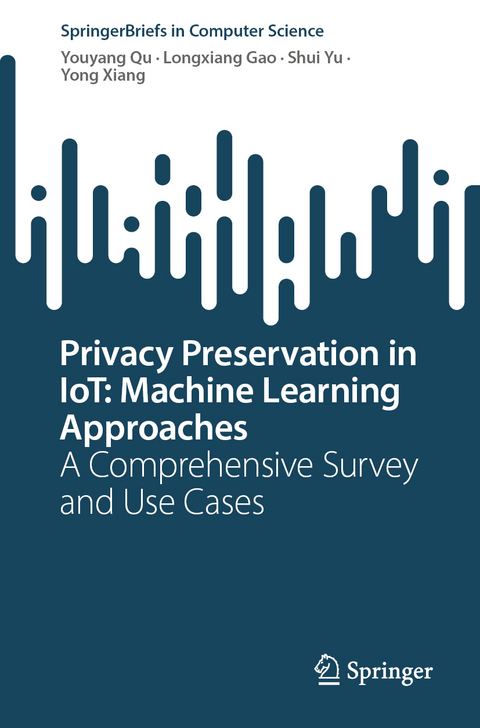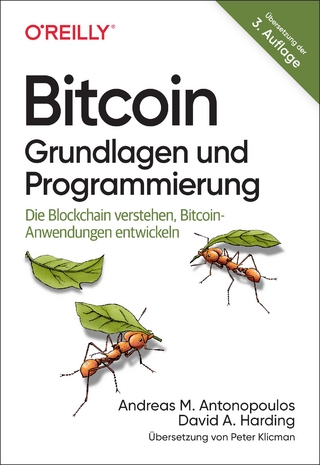
Privacy Preservation in IoT: Machine Learning Approaches
Springer Verlag, Singapore
978-981-19-1796-7 (ISBN)
The issues of existing privacy protection methods (differential privacy, clustering, anonymity, etc.) for IoTs, such as low data utility, high communication overload, and unbalanced trade-off, are identified to the necessity of machine learning-driven privacy preservation. Besides, the leading and emerging attacks pose further threats to privacy protection in this scenario. To mitigate the negative impact, machine learning-driven privacy preservation methods for IoTs are discussed in detail on both the advantages and flaws, which is followed by potentially promising research directions.
Readers may trace timely contributions on machine learning-driven privacy preservation in IoTs. The advances cover different applications, such as cyber-physical systems, fog computing, and location-based services. This book will be of interest to forthcoming scientists, policymakers, researchers, and postgraduates.
Dr. Youyang Qu received his Ph.D. degree in Information Technology at School of Information Technology, Deakin University, in 2019, and he is currently serving as Research Fellow in Deakin University. His research interests focus on dealing with security and customizable privacy issues in blockchain, social networks, machine learning, and IoT. He has over 30 publications on top journals and magazines such as IEEE IOTJ, IEEE TII, and IEEE Wireless Communication. He has served as TPC Member for IEEE flagship conferences including IEEE ICC and IEEE Globecom. He is also Publicity Chair of SPDE 2020. Dr. Longxiang Gao received a Ph.D. in Computer Science from Deakin University, Australia. He is currently Senior Lecturer at the School of Information Technology, Deakin University. Before joining Deakin University, he was Post-doctoral Research Fellow at IBM Research and Development Australia. His research interests include data processing, mobile social networks, fog computing, and network security. He has over 80 publications, including patents, monographs, book chapters, and journal and conference papers. Some of his publications have been published in the top venues, such as IEEE TMC, IEEE IoT, IEEE TDSC, and IEEE TVT. He received the 2012 Chinese Government Award for Outstanding Students Abroad (Ranked No.1 in Victoria and Tasmania consular districts). Dr. Gao is Senior Member of IEEE and is active in IEEE Communication Society. He has served as TPC Co-Chair, Publicity Co-Chair, Organization Chair, and TPC Member for many international conferences. Professor Shui Yu is currently Full Professor of School of Computer Science, University of Technology Sydney, Australia. Dr. Yu's research interest includes security and privacy, networking, big data, and mathematical modelling. He has published two monographs and edited two books, more than 200 technical papers, including top journals and top conferences, such as IEEE TPDS, TC,TIFS, TMC, TKDE, TETC, ToN, and INFOCOM. Dr. Yu initiated the research field of networking for big data in 2013. Dr. Yu actively serves his research communities in various roles. He is currently serving the editorial boards of IEEE Communications Surveys and Tutorials, IEEE Communications Magazine, IEEE Internet of Things Journal, IEEE Communications Letters, IEEE Access, and IEEE Transactions on Computational Social Systems. He has served many international conferences as Member of organizing committee, such as Publication Chair for IEEE Globecom 2015, IEEE INFOCOM 2016 and 2017, TPC Chair for IEEE BigDataService 2015, and General Chair for ACSW 2017. Dr Yu is Final Voting Member for a few NSF China programs in 2017. He is Senior Member of IEEE, Member of AAAS and ACM, Vice Chair of Technical Committee on Big Data of IEEE Communication Society, and Distinguished Lecturer of IEEE Communication Society. Professor Yong Xiang received the Ph.D. degree in electrical and electronic engineering from the University of Melbourne, Australia. He is currently Professor and Director of the Artificial Intelligence and Image Processing Research Cluster with the School of Information Technology, Deakin University, Australia. His research interests include information security and privacy, multimedia (speech/image/video) processing, wireless sensor networks, massive MIMO, and bio-medical signal processing. He has authored more than 110 refereed journal and conference papers in these areas. He is Associate Editor of the IEEE SIGNAL PROCESSING LETTERS and the IEEE ACCESS. He has served as Program Chair, TPC Chair, Symposium Chair, and Session Chair for a number of international conferences.
Chapter 1 Introduction.- Chapter 2 Current Methods of Privacy Protection in IoTs.- Chapter 3 Decentralized Privacy Protection of IoTs using Blockchain-Enabled Federated Learning.- Chapter 4 Personalized Privacy Protection of IoTs using GAN-Enhanced Differential Privacy.- Chapter 5 Hybrid Privacy Protection of IoT using Reinforcement Learning.- Chapter 6 Future Directions.- Chapter 7 Summary and Outlook.
| Erscheinungsdatum | 03.05.2022 |
|---|---|
| Reihe/Serie | SpringerBriefs in Computer Science |
| Zusatzinfo | 36 Illustrations, color; 3 Illustrations, black and white; XI, 119 p. 39 illus., 36 illus. in color. |
| Verlagsort | Singapore |
| Sprache | englisch |
| Maße | 155 x 235 mm |
| Themenwelt | Informatik ► Netzwerke ► Sicherheit / Firewall |
| Informatik ► Theorie / Studium ► Künstliche Intelligenz / Robotik | |
| Technik ► Elektrotechnik / Energietechnik | |
| Schlagworte | Blockchain • Data Sharing • internet of things • machine learning • Privacy Protection |
| ISBN-10 | 981-19-1796-5 / 9811917965 |
| ISBN-13 | 978-981-19-1796-7 / 9789811917967 |
| Zustand | Neuware |
| Informationen gemäß Produktsicherheitsverordnung (GPSR) | |
| Haben Sie eine Frage zum Produkt? |
aus dem Bereich


